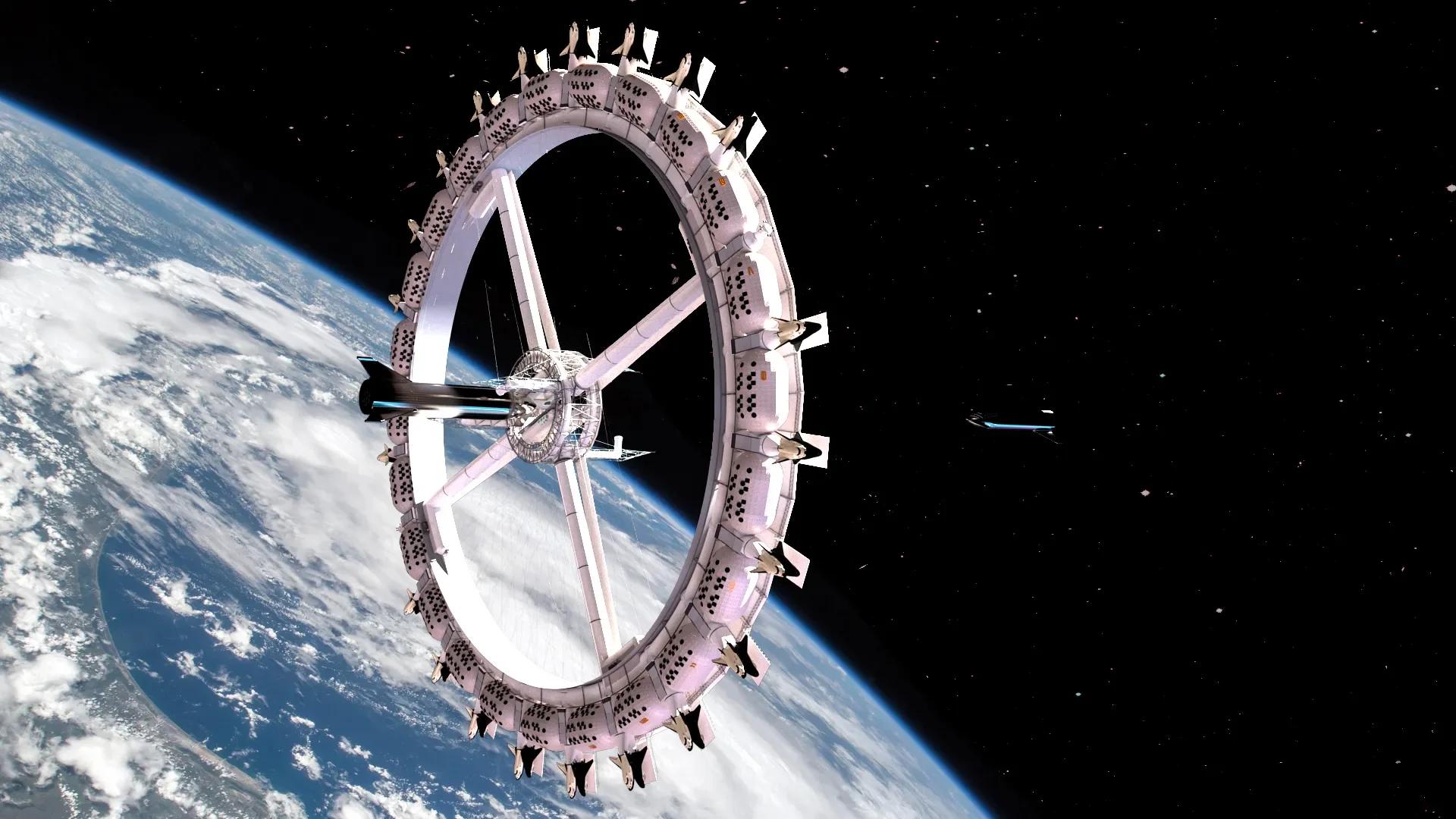Space Hotels as the First Consumer Market in Orbit
Concept art for the Voyager Station space hotel.
Credit: Above: Space Development
Early tourism as a demand signal that funds industrial capacity
Tourism will start niche and premium, but it does something no government programme can: create visible consumer demand that justifies larger stations, better logistics, and more capable life-support. Space hotels package safety, spectacle, and story; the product is time on orbit with reliable amenities.
The commercial trick is dual-use. Modules designed for hospitality double as habitats for researchers and industrial tenants during off-peak periods. Media, education, and sponsorships amplify revenue, while loyalty programmes and crewed-experience certifications build brand trust.
Commercial takeaways
Operators are framing tourism as a visible, revenue-generating demand signal that supports broader orbital capability. Early customers include high-net-worth travellers, media brands and education partners, with corporate residencies expected to follow as schedules stabilise. The product is sold as an itinerary—training, flight and stay—with options for research and content rights. Access runs through concierge travel networks and flagship brand collaborations. Market confidence is being built through demonstrator stays, transparent safety briefings and referral programmes that normalise repeat bookings.
Space tourism isn’t a distraction— it’s a valuable prototype for living in space, funded by early adopters who pay for the orbit-scale infrastructure that the space industry needs.
